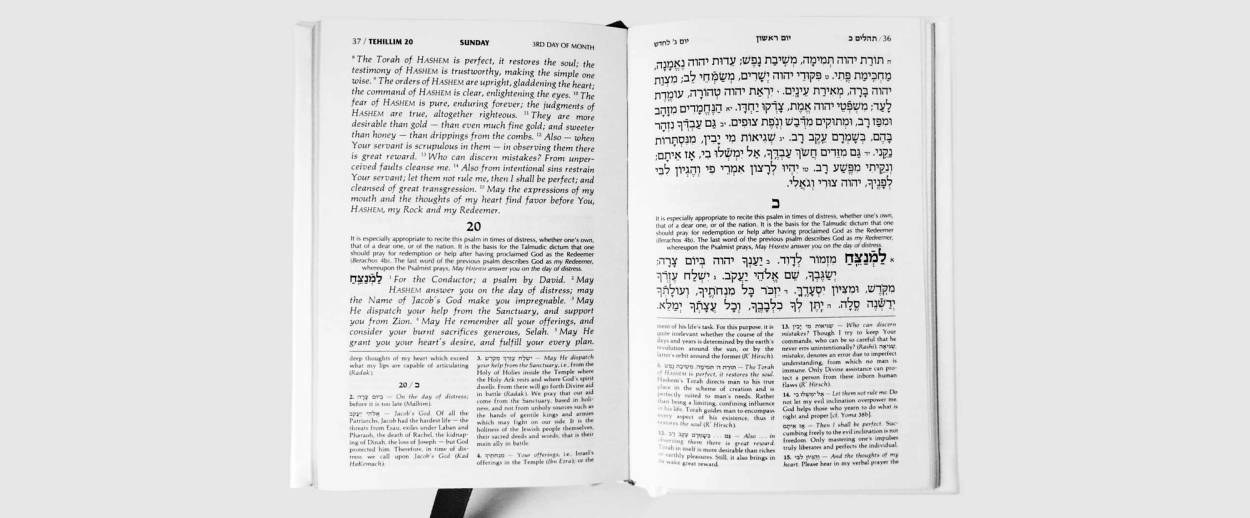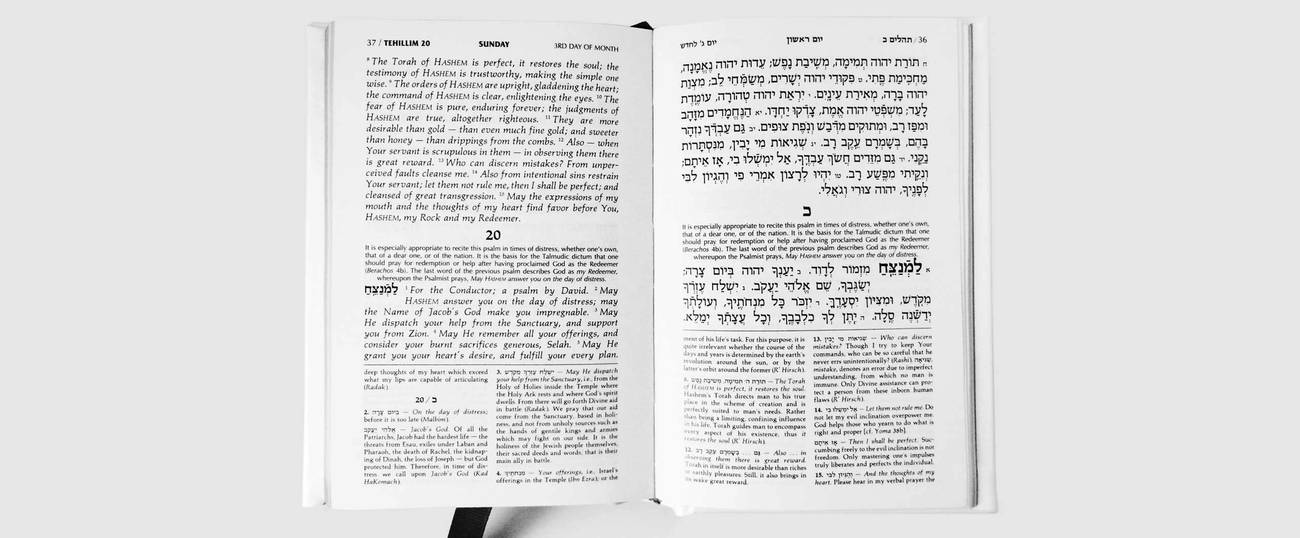A Psalm for Pittsburgh
Finding words in liturgy to cope with tragedy




When there are tragedies in the world that challenge and push against the limits of language, Jews traditionally say Psalms. Psalms, or Tehillim, provide a liturgy that has been used for thousands of years to offer us words when we have none.
“A song of ascents: I raise my eyes to the mountains. From where does my help come?” (Psalms 121:1)
“A song of ascents: From the depths, I have called out to you, Hashem.” (Psalms 130:1)
Perhaps more than any other Jewish liturgical text, the Book of Psalms is noteworthy for its openness to despair. The psalms vacillate between faith in God and fear of emptiness; a desire to believe in community and an anxiety about being alone. “Help,” the psalmist seems to say. “I am in the throes of despair, and I cannot imagine a way out.” But there is an answer. Our help comes from God, and it comes from each other. This does not mean that we must ignore our despair. On the contrary, we are meant to mourn, to dwell in this place of darkness and this valley of the shadow of death. But as long as we can raise our eyes and our voices, as long as we can call out and cry out, someone will see us. Someone will hear us, and they will answer, even if it is in the smallest, most quiet voice.
“Though I walk through the valley of the shadow of death, I am not afraid, because You are with me.” (Psalms 23:4)
In moments of darkness like the one we are plunged into now, it is easy to feel alone. To feel alone as individuals, uncertain of what to do with our grief, unsure how to relate to a tragedy that is both ours and not ours at the same time. But also to feel alone as a community, as we are reminded that there are still, as there have always been, people who hate us simply because we are Jews, and who will try to kill us without knowing anything about us. And yet, when we look around, we see that we are not alone. At events across the country, people of all faiths have come to promise that they love and will protect us. My husband and I found out about the shooting after Shabbat because he opened an email from a Muslim friend who had written right away to express her condolences. At the vigil I went to Sunday night, a pastor told a story of how a cab driver, when he heard that the pastor was going to a synagogue for a memorial event, wouldn’t let him pay for his ride. Sometimes the most hateful voices are the loudest, but they are not the most important ones.
“For the sake of my brothers and friends, I will now say, Peace be within you.” (Psalms 122:8)
And for the people of Pittsburgh, for the Jews of Squirrel Hill: Our prayers go out to you, and for you. You may be afraid. I am afraid, too. But we are with you. As you walk through this dark valley, you will not come out the same way on the other side, but you will not be alone a single step of the way. And for your sake, we will continue to work for peace, both in the larger world, and inside of ourselves. This peace won’t be easily achieved, or arrive overnight, but we promise you that we will continue to believe in it and help create it.
“Hashem will give strength to His people, Hashem will bless His people with peace.” (Psalms 29:11)
That peace won’t come from giving in, or disappearing. It won’t come from passivity or complicity or taking the path of least resistance. Instead, as the verse says, peace comes through strength. Let me be clear. Strength does not mean violence. It doesn’t mean guns in synagogues and fear of everyone new who enters the room. Instead, strength is about the faith that, even in the darkest moments, we will, somehow, someday, find the strength to go on.
What does that mean? It means supporting the important work of HIAS, because Judaism is committed to loving the stranger. It means going to shul, because the 11 people who were murdered can’t go anymore. It means voting, because otherwise our despair will be mistaken for apathy. It means speaking up against hatred, anti-Semitism, racism, and bigotry, even when it’s scary. It means doing an extra act of kindness, for the 11 souls who were robbed of the chance to do kindness themselves. Through these acts of strength—strength we shouldn’t have to muster but is still required of us—we might begin to find peace.
“Her paths are the paths of pleasantness, and all of her ways are peace. It is a tree of life to those who grasp it, and those who hold fast to it are happy.” (Proverbs 3:17-18)
The Tree of Life congregation’s name comes from the Book of Proverbs, or Mishlei. The tree is Torah, and all of the wisdom and obligations that come with it. Metaphors for Torah abound in biblical and rabbinic literature. Torah is a tree, it is water, it is sustenance. It is the life force that has sustained the Jewish people across time and space, even as there have been so many who have tried to destroy us.
It is surely hard to believe that all of the paths of Torah are pleasantness and peace, when people have been slaughtered because of their devotion to the Jewish community. In a moment like this one, the promise that those who cling to Torah are happy feels like a cruel mockery. After all, the 11 people murdered were the ones who showed up every Shabbat, on time, to make sure everything is in order and to make a minyan. For their families and their friends, their communities and so many of us who did not have the honor of knowing them, happiness is far away. But perhaps these verses in Proverbs can offer a prayer, or maybe even a promise. Joy is far away, but it can come again. As the psalmist wrote, “In the evening, weeping may tarry, but joy comes in the morning.” And so, too, may it be for us, amen.
***
Like this article? Sign up for our Daily Digest to get Tablet magazine’s new content in your inbox each morning.
Rachel Rosenthal is a David Hartman Center fellow at the Shalom Hartman Institute and teaches Talmud at the Jewish Theological Seminary. She holds a PhD in rabbinic literature.